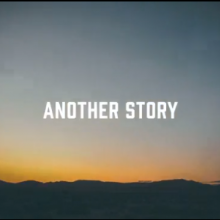Music
WHEN I MOVED out of my Sojourners magazine office in 1988, I took with me two signed review copies of books. One was Roll the Union On: A Pictorial History of the Southern Tenant Farmers’ Union. It was inscribed to me personally by H.L. Mitchell, a founder of the STFU, so I felt entitled to keep it.
The other book bore no inscription, just a simple black ink signature above the Simon & Schuster logo. It was called Carry It On! A History in Song and Picture of America’s Working Men and Women, and the co-author who signed it was Pete Seeger. I’m looking at that signature now, as I write this on the day Seeger died.
I told myself that I kept that book because I thought it might come in handy. After all, it had 11 translations of “L’Internationale” and all the words to “Solidarity Forever.” But really I kept it for the signature. I liked the idea of having something that I knew had come from the hand of someone who had ridden the rails with Woody Guthrie. Seeger was our living connection to the culture of the 1930s when, for a moment, radical dreams about a country owned and operated by its ordinary citizens seemed almost ready for prime time.
Of course, that moment passed, and those dreams were shattered by the Red Scare and the Cold War that followed. But Seeger came out on the other side with his integrity and ideals intact. Despite being honored by the last two Democratic presidents, he never renounced his radical vision of what America could be. Seeger left the Communist Party in the early 1950s and frankly acknowledged that he should have done so sooner, but he never stopped calling himself a “small c” communist. In 1994, he told The Washington Post, “Our ancestors were all socialists: You killed a deer and maybe you got the best cut, but you wouldn’t let it rot, you shared it.” Still, he was a pragmatic radical, who added that socialists should recognize that “every society has a post office and none of them is efficient. No post office anywhere invented Federal Express.”
WHEN I MOVED out of my Sojourners magazine office in 1988, I took with me two signed review copies of books. One was Roll the Union On: A Pictorial History of the Southern Tenant Farmers’ Union. It was inscribed to me personally by H.L. Mitchell, a founder of the STFU, so I felt entitled to keep it.
The other book bore no inscription, just a simple black ink signature above the Simon & Schuster logo. It was called Carry It On! A History in Song and Picture of America’s Working Men and Women, and the co-author who signed it was Pete Seeger. I’m looking at that signature now, as I write this on the day Seeger died.
I told myself that I kept that book because I thought it might come in handy. After all, it had 11 translations of “L’Internationale” and all the words to “Solidarity Forever.” But really I kept it for the signature. I liked the idea of having something that I knew had come from the hand of someone who had ridden the rails with Woody Guthrie. Seeger was our living connection to the culture of the 1930s when, for a moment, radical dreams about a country owned and operated by its ordinary citizens seemed almost ready for prime time.
Of course, that moment passed, and those dreams were shattered by the Red Scare and the Cold War that followed. But Seeger came out on the other side with his integrity and ideals intact. Despite being honored by the last two Democratic presidents, he never renounced his radical vision of what America could be. Seeger left the Communist Party in the early 1950s and frankly acknowledged that he should have done so sooner, but he never stopped calling himself a “small c” communist. In 1994, he told The Washington Post, “Our ancestors were all socialists: You killed a deer and maybe you got the best cut, but you wouldn’t let it rot, you shared it.” Still, he was a pragmatic radical, who added that socialists should recognize that “every society has a post office and none of them is efficient. No post office anywhere invented Federal Express.”
Nearly 60,000 people have signed a Change.org petition demanding that YouTube take down a Katy Perry video they say is blasphemous and offensive to Muslims.
About 75 seconds into the video for the song “Dark Horse,” a Cleopatra-like Perry shoots a laser at a man dressed as a pharaoh but also wearing a pendant that says “Allah” in Arabic. Both the man and the Allah pendant disintegrate.
“Blasphemy is clearly conveyed in the video,” reads the petition, started by 22-year-old Shazad Iqbal of Bradford, England, who suggests Perry sets herself up as an enemy of God by shooting the man with the Allah necklace. “We hope YouTube will remove the video.”
INSIDE LLEWYN DAVIS, the new Coen brothers film, is the mournful tale of a folk musician too dedicated to his art to make money or to accept love when it’s offered him. It has gorgeous music, performances that are like watching characters step off the pages of a Joseph Mitchell New Yorker story, and language that is exquisite, but not so much that we don’t believe it. A common response to Inside Llewyn Davis is that it’s a pessimistic film, with characters so self-centered and worn down by money and the lack thereof that they cumulatively produce a world of no hope.
Many assert that the Coen brothers have pitched their tent as the anchor tenants of cinematic melancholia—Fargo’s bleak focus is a family utterly destroyed by financial pressures and the inability to know where or how to ask for help; Barton Fink’s eponymous protagonist finds his dream writing contract ends up a descent into hell; and The Man Who Wasn’t There is finally executed because he doesn’t see the point in defending himself. Llewyn Davis is an impetuous man in a fickle industry, too out of touch with his own humanity to want to see his own child, and he is beaten up for heckling a fellow musician. And so people come out of this film depressed. To which my minority response is simple: Look closer. Inside Llewyn Davis is full of life and second chances and, yes, hope for artists. Davis has friends who care, and there are people who get what he does. Who cares if the world isn’t listening? That was never a measure of great art anyway.
Understanding the process of turning an implement of death and violence into a tool for creativity and imagination is one part of the strategy. In doing so, there is hope that participants in such an event will begin to reimagine their own world and how they engage it. After all, true change first begins with imagining the possibility of such transformation.
Further, Reyes hopes to challenge U.S. citizens to consider their relationships with guns, and moreover, the impact that value has on people in other countries. Again, in the NPR story, Reyes explains, “We have to be allowed to ask questions. If you are not allowed to ask questions, you are not free."
Hagar’s Story
Sisters in the Wilderness: The Challenge of Womanist God-Talk, by Delores S. Williams, now professor emerita of theology and culture at Union Theological Seminary, is a landmark in womanist thought. The recently released 20th anniversary edition has a new foreword by Katie G. Cannon. Orbis
Moving Music
Jon Batiste and his band, Stay Human, have played on the New York subway and in other public spaces in free-ranging, mobile performances they call “love riots.” Their album Social Music offers that same positive spirit and a fresh take on jazz. Razor & Tie
This year I have been trying something new to me. I’m trying my hands at a little music or concert review. It’s a chance to experiment with this nascent methodology I’m developing. The posts have been some of the most commented upon on Facebook and even on the blog. Thanks for everyone’s engagement!
Though not the beginning, certainly the central review is this duo about Mumford and Sons and eschatological banjos. Cathleen Falsani was in town and we had a great time at these shows. These concerts are all about the eschaton, transcendence, immanence, and banjos. There are always banjos. I know.
One of the downsides of a theological education (and/or an overactive theological imagination) is an inability to sing some favorite old hymns with naive gusto. During this Christmas season in particular, we simply know too much about the biblical story (and the reality of childbirth and babies in general) to fully believe all of the touching words in some of the most popular Christmas carols.
So as a public service, I have written historically accurate versions of three of the most beloved holiday hymns. Without personally endorsing any of the theology below, I also offer some alternatives to those who don't theologically jive with the current version of "Joy to the World."
Way back in the day (circa 2004), Switchfoot's lead singer, Jon Foreman, was asked if the band is a “Christian” band. Even though it's been a while, his response is worth looking at again.
I was driving home from work a few weeks ago and found myself suffering from a little radio ADD. I flipped through every station on my programmed radio console with a sense of emptiness. Each station was playing what sounded like the same song with the same beat over and over again.
How can I find meaning in my drive home with the drudgery of the same bland music?
I finally gave up on my search for meaning and stopped on my favorite top-40 radio station, Chicago’s 101.9 The Mix. And there it was. Someone was singing these words:
I will love you unconditionally
There is no fear now
Let go and just be free
I will love you unconditionally.
“Wait a minute,” I thought. “The Mix is playing a song about God?!? Had The Mix been taken over by a Christian radio station? Had K-Love or Moody Radio joined messianic forces with Rafael and Ted Cruz to enforce Christian Dominionism all over American radio?”
There is no mistaking it: Shad Kabango's music is authentic and tenacious. With incredible humility, he speaks from his heart, with no fear of calling out the inconsistencies he sees in the world.
In the recent release of his 4th studio album, Flying Colours, the critically acclaimed Canadian emcee, better known as simply "Shad," hopes his music speaks for itself.
"It’s not easy to summarize or convey, I don’t think," Shad said of the theme of the album, in a recent interview with Sojourners. "Some sort of … feeling of hope, I guess, but hope within the complexity of real life and the challenges of real life."
Still Shining
David Hilfiker is a retired inner-city physician and writer on poverty and politics who has Alzheimer’s. He writes about his experience, with the hope of helping “dispel some of the fear and embarrassment” that surrounds this disease, on his blog “Watching the Lights Go Out.” www.davidhilfiker.blogspot.com
Transported
Laura Mvula is a British, classically trained musician, songwriter, and former choir director whose debut album,Sing to the Moon,is a lush fusion of soul, jazz, gospel, and pop. While not overtly “about” faith, her arrangements are imbued with spiritual longing and visions of beauty. Columbia
It seems rare these days to find an album where each song is valuable both individually and as part of the collective whole that makes up the record. Musicians are always telling us that they “don’t want to make just a few good singles with filler,” but few are able to fulfill those lofty intentions. Wilco did it on Yankee Hotel Foxtrot, where the songs were different from themselves and anything Wilco had ever done in the past, and Animal Collective did it more recently on the 2009 album Merriweather Post Pavilion with the opposite approach: each song was unified by a cohesive and consistent sonic palette. Many point to Fleetwood Mac’s 11th studio album Rumours as another example, and there are surely others depending on one’s musical tastes.
But I think a newer, much lesser known group has entered that conversation, and they’ve done it on their first studio release, nonetheless. Brooklyn-based Lucius have managed to craft an album with diverse songs, catchy hooks, and really powerful vocals and harmonies stick in your head for days. There isn’t a song on their debut, Wildewoman, I want to skip through. Bob Boilen of NPR’s ‘All Songs Considered’ perhaps says it best when describing their EP: “If it were possible to wear out a digital file, then my copy of Lucius' self-titled 2012 EP would now be scattered digital bits.”
On the opening night of the Yeezus Tour, multi-platinum, Grammy award-winning rapper Kanye West brought out an actor to portray Jesus during his concert in Seattle. Most of the time when I see "White Jesus" depicted, I don't get offended because I don't find it to be historically accurate. But between this and the title and theme of Kanye's last album, Yeezus, I was initially fed up. His antics were disrespectful, offensive, and just plain unnecessary.
Before I began to write this post I searched for concert footage of the event, but I stumbled upon an interview Kanye had with Wild 94, a hit music station in San Francisco. During the interview, which was done a few days after his Seattle performance, he was given the opportunity to explain his motives behind bringing out Jesus.
"We do plays all the time. People play Jesus,” West said. “You know what’s awesome about Christianity is we’re allowed to portray God. It’s a painting, it’s a sculpture, it’s a moving opera, it’s a play, it’s a message. God knows where my heart is at.”
Then came the comment that changed the entire direction of this post:
“One of the things that I really wanted to get across is that you can have a relationship with Jesus. That you can talk to Jesus. This is the way I express it.”
Life is riddled with a smorgasbord of emotional highs, lows, tragedies, triumphs, and what might feel like monotony to fill in the gaps.
On the newest album from Seattle folk and Americana band The Head and the Heart, you can feel the wear and tear of a group who have simply experienced a lot and probably had little time to rest and reflect.
“When I think about the two records together, the first one feels like we all wanted to fulfill this dream we’d had about playing music, meeting people and traveling around,” drummer Tyler Williams told Sub Pop. “This one feels like the consequences of doing that — what relationships did you ruin? What other things did you miss? You always think it will all be perfect once you just do ‘this.’ And that’s not always the case.”
Seattle-based folk group The Head and the Heart released their newest single, "Another Story," off of their anticipated upcoming album, Let's Be Still. The song beautifully wrestles with the grief and confusion that struck the country during the chaos that followed the Newtown, Conn., shootings at Sandy Hook Elementary School.
Check it out below:
Maybe you are like me and you need a bit of good news this week, because it’s been a week of bad news. There was the tragic shooting at the Navy Yard, leaving 12 people killed. Then there were the racist comments about the new Miss America, Nina Davuluri. She is the first person of Indian descent to be crowned Miss America, yet the news of the event emphasized racist tweets. It was almost as if people were competing over who could be the most racist: Some referred to her as “the Arab,” and other tweets claimed, “this is America, not India,” and one even called her “Miss 7-11.” Not to mention the continuing escalation of tensions throughout the world involving Syria.
It was a depressing beginning to the week. I mimetically absorbed much of this violence, hatred, and racism. Misanthropy settled into my soul and I began to loathe myself and the entire freakin’ human race.
But then I saw this video of Beyoncé performing in Brazil, and my hope in humanity was restored.
It’s been twenty years since I rose and cleared my throat
It’s been ten years since stood outside the church
- Derek Webb, I Was Wrong, I’m Sorry & I Love You
The first verse of the first song on the Derek Webb’s new album is a recap of his music career, from Caedman’s Call in the 90s to his solo career launched with She Must and Shall Go Free (2003). Since that first solo album, Webb has pushed all sorts of buttons in the church and the “Christian” music world. From albums Stockholm Syndrome (2009) to Sola Mi (2012) and Ctrl (2012), he’s pushed his own musical boundaries and themes, incorporating elements of hip-hop and electronica and veering away from his gospel-country-folk roots.
I Was Wrong, I’m Sorry & I Love You releases today across the country. While you can buy the album online, it is also at a number of Christian retailers for only $4.99 (an unbelievable deal, I must say). It is a return to those gospel-country-folk roots while still embracing all he’s learned in the past 10 years of a solo career. The bright guitar sounds return alongside mellow synthesizers, and for some songs, a crowd-sourced chorus.
But more important than the sounds are the lyrics. They’re not snarky or sarcastic like earlier records Mockingbird and The Ringing Bell, but still raw and personal.
This world is so beautiful
For no reason at all
When life circles around
And you can’t see straight
– from “Can’t See Straight” by Sam Phillips
"Push Any Button,” the first new physical album in five years from singer-songwriter Sam Phillips, is a blithe, fetching exploration of life’s flip side — after the flush of youth, after the heartbreak, after the bottom falls out and the road bends and you head in a wholly unexpected direction that turns out to be exactly where you need to be.
“Push Any Button,” which dropped Aug. 13, looks to the future by examining the past, viewing both through a lens of stubborn (and optimistic) grace.
Trey Pearson, front man and creative mind behind the band, Everyday Sunday, is in many ways the picture of a successful Contemporary Christian Music artist. He’s toured the world, played to thousands of fans at a time and sold hundreds of thousands of records. So I was intrigued when I sat down with him at the recent Wild Goose Festival in North Carolina to learn more about why this icon of Christian pop was going solo with his most recent record.
How did you get started in the Contemporary Christian Music (CCM) scene?
I was introduced to the scene as a teenager, finding out that people listened to "Christian music.” I started going to "Christian concerts,” and was inspired to write my own songs and have a band. I was already into performance art as a teenager from doing theater, musicals, acting, and modeling for commercials, print, and things of that nature. I grew up teaching myself piano, and was intrigued by the idea of playing songs for people.
Given my background, I felt like I needed to do "Christian songs" to glorify God with my art. Long story short, after opening for several signed artists, I dropped out of college (after being on honor roll through my freshman year) to make an independent album and pursue a record deal. I went to Nashville, and knocked on doors until someone would listen. I signed a deal three months after I released my independent album.














